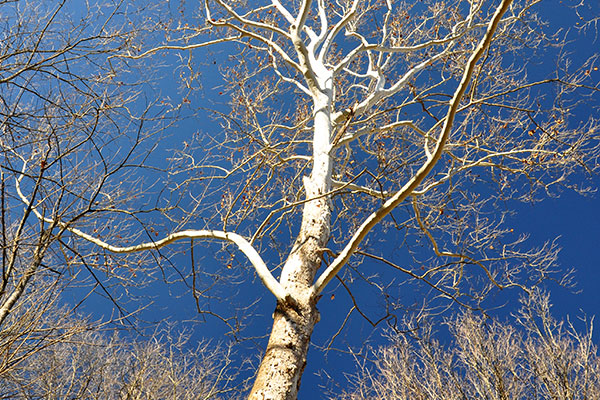The winter is the toughest season of the year for trees. With the cold weather, brutal storms, and burrowing hibernating animals, your trees stand at a great risk to be permanently damaged. However, a little winter tree care goes a long way to protecting your valuable trees from the harms of the winter weather. Here are some of the small steps you can take to make a big difference in your trees’ health.
Mulch
During the winter, many of the problems your trees will face are connected to a lack of moisture in the tree. Because the ground is frozen, trees are unable to absorb as much water from the ground. When conditions are sunny but the ground is still frozen, a tree can begin to dry out. This phenomenon is only worsened by strong winds that are extremely common in winter. This lack of moisture puts any tree under a significant amount of stress, as without water, a tree is not able to transport nutrients it needs to survive through its tissue. Unfortunately, there is not much you can do to fight this once the winter has begun. However, before the winter begins, make sure to lay a thick level of mulch. This will help to slow moisture loss and serve as a way to insulate the roots. If there is a thaw, water any trees, especially newly planted ones.
Cabling and Pruning
The strong winds of a winter storm can prove to be a significant threat to the structural soundness of any tree. The wind can expose the weaknesses of your trees, from deadwood to a weak deep v tree crotch. Many times, even if branches are healthy they will break, weakened from the cold temperatures. The way to prevent your trees from being damaged by cold and wind is engaging in a full tree care service from Ted Collins. With the help of our tree care professionals, you can identify deadwood that needs to be cut from your trees and identify any weak areas that can be mended by cabling, bracing, or supports. If your trees are properly maintained, they will have no problem standing up to the strongest New York storms! To request an estimate, give us a call today at (585) 381-9000 or request an estimate online.
Rodent Prevention
Although they’re small, many rodents and other woodland animals can severely damage your trees. If the winter is especially bad, many times mice and squirrels will eat tree bark to survive. Having bark stripped from it trunk, especially around the circumference of a trunk, can kill or severely damage it. To protect against these rodents, make sure to leave a significant space between the mulch and trunk. In addition, off the shelf bait and trunk treatments are available.

